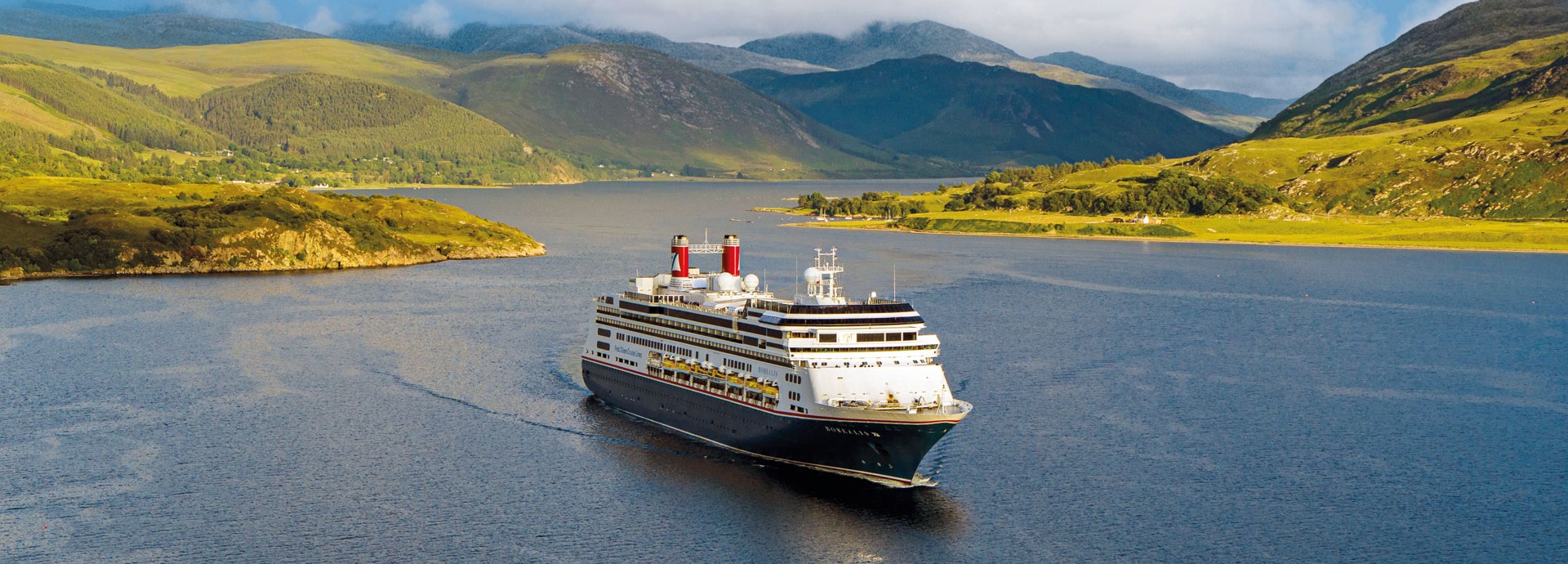

Comprehensive engine upgrade on two vessels delivers Tier II compliance for leading European cruise operator
As a leading European cruise operator with a passion for quality and eco-efficiency, Fred. Olsen Cruise Lines knew that there was no better partner than the OEM to upgrade the engines on two recently purchased vessels. Thanks to Wärtsilä’s intimate knowledge of the engines and deep engineering expertise, the Borealis and Bolette liners are now Tier II compliant and ship-shape for voyages among the breath-taking scenery of the Norwegian fjords.
Challenge
- Upgrade vessel engines to comply with IMO Tier II requirements
- Ensure engine efficiency and long-term operational reliability
Solution
- Tier II engine upgrade for a total of 5 engines
- 12,000-hour engine overhaul
Benefit
- Vessels can now ply routes in the tightly controlled Norwegian fjords
- Overhauled engines are now more efficient and environmentally friendly
In contrast to much of the rest of the cruise industry, which has adhered to the philosophy of ‘bigger is better’ with ever-larger vessels capable of carrying mind-bending numbers of passengers, Fred. Olsen Cruise Lines has always believed that smaller vessels offer more advantages for passengers. The family-run company aims to treat every passenger as a guest, with a warmer, more personal level of service onboard its four cruise liners – Braemar, Balmoral, Borealis and Bolette. The latter two ships, purchased from Holland America Line in 2020, are powered by ZA40S engines – technology that was new to the company.
“Fred. Olsen knew that the engines required maintenance and upgrades and, as a long-term partner of Wärtsilä, they also knew that as the OEM we would be able to deliver exactly what they needed,” says Einar Valland, Sales Manager, Wärtsilä Norway.“ In particular, they were keen to bring both vessels into line with the IMO’s Tier II NOx emissions limits so that they complied with the Norwegian Maritime Authority’s requirements for vessels sailing in the Norwegian fjords,” he continues.
Wärtsilä upgrade makes the engines as good as new
The scope of the project covered three of the five engines aboard Bolette and two of the five aboard Borealis. It not only involved the Tier II upgrade but also a 12,000-hour maintenance overhaul. “The customer was keen to ensure that everything would run smoothly from the get-go once the vessels were put into operation, so they entrusted us with a comprehensive overhaul since we know the engine type inside out,” says Jakob Grönroos, Project Manager, Wärtsilä, Finland.
During the ZA40S Tier II upgrade several engine components are exchanged and non-OEM parts replaced to comply with the parent engine class-approved setup. The setup optimises engines for low-NOx operations by changing and installing components such as the piston crowns, charge air cooler, turbocharger and variable inlet valve closing control. In this specific project a variety of turbocharger components were replaced with OEM parts where needed and an electric air wastegate valve installed to control the charge air pressure, replacing the obsolete exhaust waste gate.
“These were the first engines of this type to be retrofitted for Tier II compliance in the field. We had already successfully performed a retrofit on an engine at our laboratory in Trieste, Italy and received class approval,” highlights Grönroos.
Ship-shape collaboration and communication ensures smooth sailing
Work on the Bolette’s three engines began in May 2021 in Babcock International shipyard in Rosyth near Edinburgh before continuing while the vessel was docked in Liverpool in preparation for its maiden voyage. The remainder of the work was completed en route during the maiden voyage. Final commissioning took place in early November 2021.
Work on the Borealis’s two engines began at the end of October 2021 and is ongoing, with final commissioning scheduled for the second quarter of 2022. Valland explains that the cooperation with Fred. Olsen has been proactive and productive from the start: “Communications have been open and honest from day one and the customer has been very understanding when we have come across issues with the engines that have taken time to resolve. We have had weekly meetings to discuss progress and cover any open issues and managed to overcome the challenges presented by the Covid-19 restrictions to keep things on track.”
In fact, the customer has been so impressed by the efforts of the Wärtsilä team that they have already ordered an upgrade for a third engine aboard Borealis. “Our two organisations share a firm commitment to always delivering the
best for our customers. The upgrade project has not been without its challenges, from both a logistic and engineering point of view, but we have worked together to overcome them,” says Grönroos.
Once the Borealis undergoes final commissioning, the Fred. Olsen Cruise Lines fleet will count among its ranks two reliable, eco-efficient vessels that will soon be delighting passengers against the stunning backdrop of the Norwegian fjords.
Our passengers demand the best from us, so we want to partner with the best in the business to help us provide them with the experiences they expect. As the OEM of the engines onboard Bolette and Borealis, Wärtsilä was clearly the partner of choice to overhaul and upgrade them. We have maintained an open and honest dialogue throughout the project and have been highly impressed by the professionalism and dedication of the whole Wärtsilä team.

